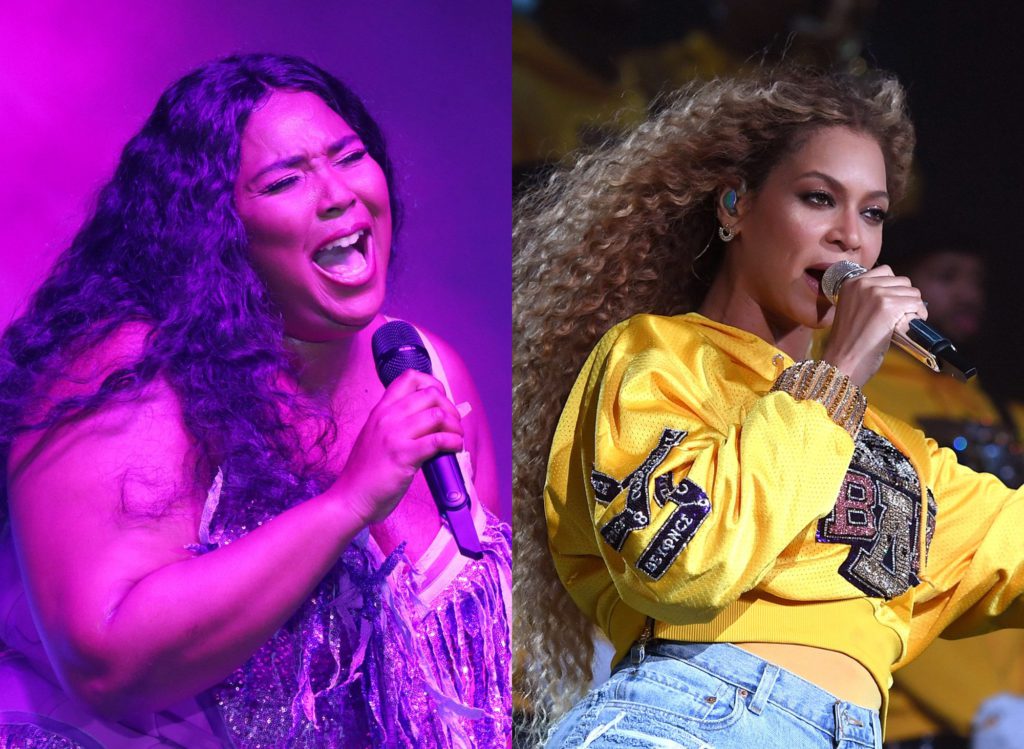(Bloomberg) — Beyonce will re-record the song “Heated” to remove an ableist slur after public outcry from disabled people, and activists are hopeful that it will signal more changes in language in music lyrics.
The 28-time Grammy winner’s decision to update the song comes days after she released the album “Renaissance” on July 29. “Heated” was co-written by Drake and featured a term that disability advocates say diminishes the lived experience of people who experience spasticity, a medical condition that results from neural pathway damage. It’s the second time in less than two months there’s been outcry over the use of the word: Lizzo apologized for using it in her song “Grrrls,” which she released earlier in June.
Representatives for Beyonce told CNN on Monday that “the word, not used intentionally in a harmful way, will be replaced.”
Ola Ojewumi, the founder and director of education non-profit Project Ascend, said she was struck by Beyonce’s accountability — and by the disproportionate focus on Black women artists for using the term.
“There’s a concentrated focus on Black women singers who use ableist language, but the same anger and the same outcry does not exist for White musicians,” said Ojewumi, who is also a disability advocate.
Artists who have used the term previously include the comedy singer Weird Al, who in 2014 apologized for its inclusion in his song “Word Crimes.” Others have changed lyrics in hindsight: The Black Eyed Peas adjusted the title and refrain of the song “Let’s Get It Started” to remove a slur for mental disability, and Taylor Swift and Paramore have changed lyrics that fans felt were offensive.
What Is Ableism
Ableism, which is commonly used to refer to discrimination against disabled people or those whose bodies and needs differ from narrow expectations, “is really insidious, exhausting and all too commonly baked into our everyday structures so that people don’t even raise an eyebrow,” said Hannah Diviney, a writer and disability advocate in Australia. “The weight of living in a world not built for you is extremely heavy.”
Diviney, who has spastic diplegic cerebral palsy, addressed the use of the term by both Lizzo and Beyonce in Twitter posts that went viral. Lizzo issued the updated version of “Grrrls” three days after releasing the original.
“Let me make one thing clear: I never want to promote derogatory language,” Lizzo said in a statement along with the song on June 13. She said the rerecording is the “result of me listening and taking action.”
Setting an Example
One in four adults in the US — or 61 million people — have a disability of some kind, according to the Centers for Disease Control and Prevention. The Americans with Disabilities Act forbids anti-disability discrimination against workers and job applicants, but ableism can still manifest in everything from word choices to artificial intelligence software meant to screen prospective candidates.
“When you know what it feels like to be harmed, and you have a platform and you take responsibility and you immediately get to work on righting the wrong, you not only are doing your work, but hopefully continuing to set an example,” said Nakisha Lewis, the president and chief executive officer of Breakthrough, a nonprofit dedicated to advocacy and equity in media, said taking action quickly is key in helping mitigate harm.
Lewis hopes critics would also hold non-Black artists accountable for their words, especially now that Lizzo and Beyonce have set the example.
“No piece of art is ever final and revisions can always be made, particularly when the humanity of any one person or group of people is at stake,” said Lewis. That Beyonce and Lizzo both took action within days is a “major step forward in accountability.”
More stories like this are available on bloomberg.com
©2022 Bloomberg L.P.











